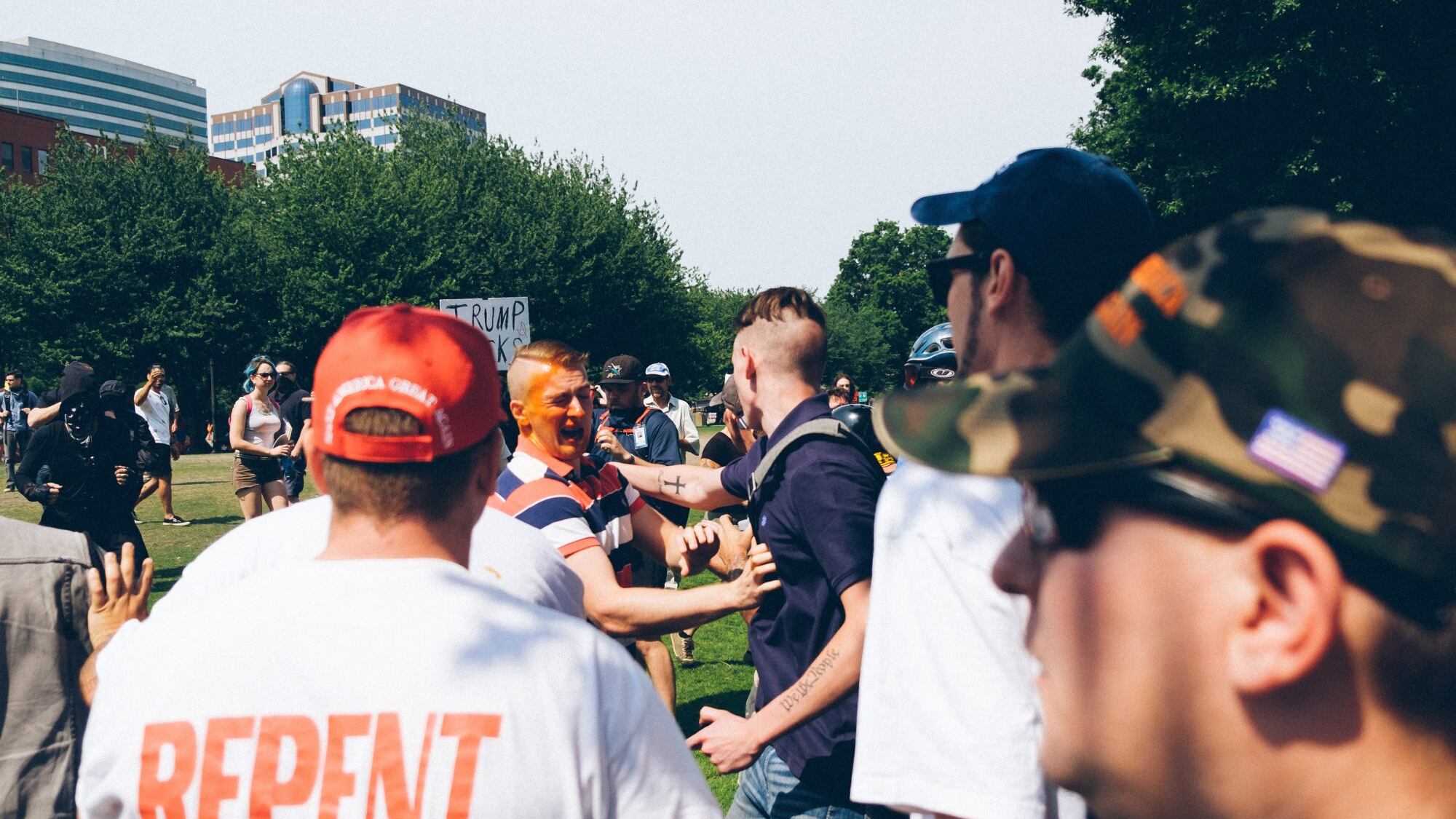Mayor Ted Wheeler sharply criticized Portland police and Multnomah County prosecutors' tactics in approaching violent clashes between right-wing extremists and their antifascist adversaries on Portland's streets.
At a press conference Monday afternoon, he suggested the Multnomah County District Attorney's Office gave the Portland Police bad advice that discouraged officers from making arrests during what he called "semi-sanctioned street brawls."
"My question was, first, of the Police Bureau: Why aren't you arresting these people?," Wheeler says. "In what city is it okay? In what city is it legal to engage in a street brawl?"
Wheeler's press conference came days after WW reported that his office had asked police and prosecutors why they had not arrested right-wing extremists—and received answers that appeared to contradict Oregon law.
Today, Wheeler said he asked for that meeting between his staff, police and prosecutors to discuss why no one had been arrested after a vicious melee outside of Kelly's Olympian, where two far-right activists kicked and stomped on a man laying on the ground.
"In reviewing the video tape and in listening to what other people who are experts in criminal law were saying, I believe that we could have acted much faster to arrest people and cut it off," Wheeler says. "And it's even more concerning to me that this concept of mutual combat has been convoluted and watered down to the degree that even Joey Gibson is quoting it as a potential mitigating factor in coming to Portland and engaging in street brawls."
He says the concept of mutual combat—which is not a legal defense in Oregon—first came from a prosecutor at MCDA. When he asked police why they had not made arrests after a particularly brutal Oct. 13 beatdown that was captured on video, Wheeler says mutual combat was the excuse provided.
"The answer came back, 'Well, we've gotten this advice from the district attorney that there's something in Oregon statute called mutual combat,'" he says. "And if you don't have a witness who's willing to come forward, if you don't have somebody who is willing to admit that they were a victim, or if two people had agreed to arrange to have a fight, it makes it very very difficult to prosecute."
In an interview with Oregon Public Broadcasting on March 7, Wheeler credited two WW stories debunking mutual combat as a reason to not arrest people engaged in dangerous fist-fights.
"Willamette Week has done a series of stories this week raising the question about whether there was perhaps a tip of the hand, if you will, towards Joey Gibson's group in terms of giving them a legal basis to engage in street brawls on our streets," Wheeler said on OPB last week. "[WW's reporting shows] the standard of mutual combat doesn't really exist. It's a fiction. So for me as the police commissioner it raises questions about whether or not there is a bias that exists in the overall system that seems to be helping some groups but not others."
Today, Wheeler intensified his criticism—and added a message to protesters.
"And by the way," he said, "if you want to come here and fight somebody, and you've got somebody in mind, and they agree, can you do us all a favor? Rent a boxing ring. They're available. The streets of our community are not a boxing ring. It is not acceptable under any circumstances."
